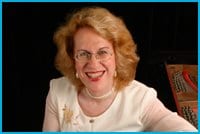Sara Davis Buechner thought her career as a classical concert pianist was over when she started her gender reassignment. As a young man named David, she’d wowed audiences in recitals and competitions. But her blossoming career was nothing compared to the need for the woman inside to break free.
“The transition was really rough,” Buechner says, “and it cost me plenty. But what I gained was my identity.”
Early life in a quiet area of Baltimore hadn’t done much to prepare Buechner for the hurdles she would have to face in her search for self-fulfilment as a trans woman.
“The early 1960s was such a different world,” she says. “Everything sexual was in the closet.” The discovery of her mother’s copy of Everything You Wanted to Know about Sex but Were Afraid to Ask didn’t help matters. “People who felt the way I did were in the chapter marked ‘Perversion,'” Buechner says. “No wonder people died cutting off parts of their bodies they couldn’t come to grips with.”
A move to the Big Apple at 17 meant a glamorous new world of freedom and opportunity at the famed Julliard School of Music. “My father drove me in his pickup, dropped me off in Greenwich Village and said ‘Good luck,'” Buechner says, laughing. “It was the emerald city. I thought it would be heaven on earth, and for the first 10 years it was.
“I think there’s no place better for a young person than a city like New York. It blasts your head open in so many directions.”
The years that followed were filled with teaching, competitions, performance and travel as the young man strove to put himself on the classical music map. But as the laurels mounted so did a growing conviction that there was more to life than professional acclaim.
“If I didn’t have a music career to contend with, I think I would have transitioned earlier in my 20s,” Buechner says, “but when I got to Julliard I just wanted to be the greatest fucking pianist I could be, so I kept it in the closet.”
Eventually the need for a full life overrode the artist’s reluctance to jeopardize her career success. Buechner began to transition in the mid 1990s. As she feared, jobs dried up, friends disappeared and family relations became complicated.
“My dad’s a very sweet fellow,” says Buechner, “but this transition challenged his boundaries. He said to me, ‘Couldn’t you just be gay?'”
It was during a particularly low point that a classmate from Buechner’s Julliard days reentered her life. Carrie Feiner had been entranced by then-David’s passionate performance style and virtuosity. “I will never forget that day in 1981,” says Feiner. “My professor needed to find a pianist and called David Buechner to read through a very difficult concerto. I will never forget how wonderful the performance was — musical, sensitive and extremely touching.”
Years later Feiner discovered Buechner, now Sara, teaching at a piano school near Feiner’s home in Westchester. She registered her daughters for lessons. But Feiner felt that the pianist’s talents belonged back on stage. Despite having no prior experience, she began drumming up bookings for Buechner, including a hard-fought return to the site of an early triumph.
“There’s one festival that I played in the ’80s when I was David but didn’t want me as Sara,” Buechner says. “When I went to Carrie with the remnants of my life, she worked on this festival for seven years until they actually reinvited me back last year.”
It was a real victory for someone who had become very familiar with misconceptions about trans folk.
“Sometimes people have very ingrained ideas that aren’t helped when the only exposure to the transgender world is turning on the Jerry Springer show.”
Springer-ites would certainly be surprised at the normalcy of Buechner’s life these days. She presents lectures and master classes worldwide and teaches at the University of British Columbia in Vancouver. The US-born pianist loves living in Canada with her longtime girlfriend and is thankful for this country’s less-oppressive atmosphere toward its queer and trans citizens.
“I give a lot of credit to Canada,” Buechner says. “The fact that this country sanctions gay marriage is a huge step toward saying to everyone, ‘Hey look Charlie… or Charlene… fuck you if you don’t like it. These are human beings and they are to be respected.”

 Why you can trust Xtra
Why you can trust Xtra


